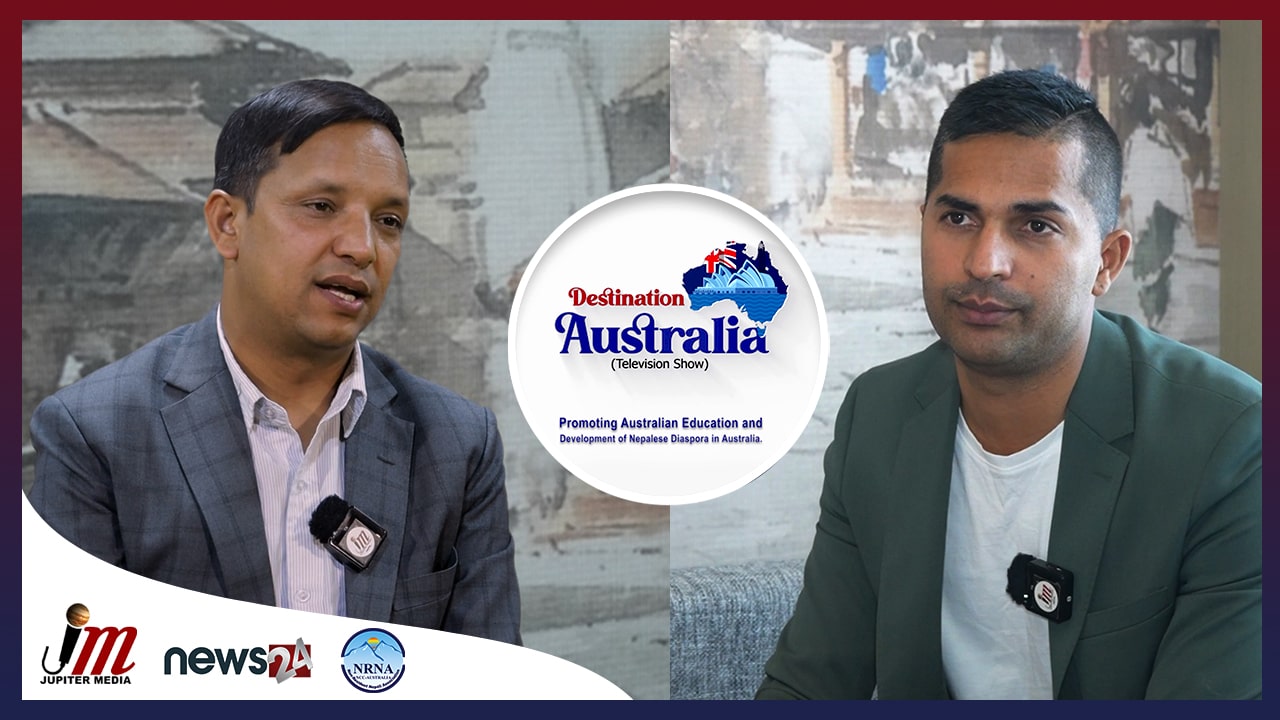Anil Pokhrel, the current President of NRNA Australia, is a dynamic leader known for his strong community engagement and contributions to the Nepali diaspora in Australia. He holds a postgraduate degree in Accounting and Finance from a reputed Australian university, providing him with a solid academic foundation that has contributed to his successful leadership. Mr. Pokhrel’s academic background has played a key role in his ability to advocate for transparent governance and financial discipline within NRNA Australia. Under his leadership, the organization has launched several impactful initiatives focused on student welfare, mental health, and economic empowerment for the Nepali community.
His efforts extend to policy advocacy, where he has worked to address the challenges faced by Nepali migrants in Australia, particularly in healthcare access, visa reforms, and business development. Mr. Pokhrel has also emphasized the importance of youth leadership, cultural preservation, and the inclusion of second-generation Nepalis in the community. His leadership has strengthened NRNA Australia’s partnerships with government agencies, academic institutions, and multicultural organizations across the country. Furthermore, he has been instrumental in organizing national conventions, charity drives, and community mapping efforts that have significantly raised the profile of the Nepali diaspora.
Anil Pokhrel is widely respected for his ethical approach, visionary leadership, and commitment to uniting and uplifting the Nepali community in Australia. His dedication to the community and his efforts to improve the lives of fellow Nepali migrants have made him a highly regarded figure in the Australian Nepali diaspora.
In a special feature segment of Destination Australia, our team sat down with Anil Pokhrel, President of NRNA Australia, to discuss the evolving story of the Nepali diaspora in Australia. From the early struggles of the late ’90s to the emergence of a confident and organized migrant community today, Mr. Pokhrel sheds light on the journey, achievements, and future aspirations of Nepalis in the land Down Under.
Anil Pokhrel:
The evolution has been remarkable. In the late 1990s and early 2000s, the community consisted mostly of retired or semi-retired individuals and a few adventurous students. By 2005, we started to see a wave of young migrants in their 30s and 40s — mainly students and professionals — who were still in the phase of struggling and establishing themselves.
Fast forward to today, the community is far more stabilized, structured, and confident. We now have a good mix of professionals, entrepreneurs, academics, and students — all actively contributing to both Australian and Nepali societies. It’s heartening to see that Nepali is among the fastest-growing languages spoken at home in Australia.
Pokhrel:
We’ve made significant progress. Nepali professionals are now excelling in sectors like accounting, IT, engineering, education, small businesses, and even in real estate. More than 25,000 registered businesses have been established by Nepalis in Australia.
We’ve also become active in emergency response networks, particularly during bushfires and floods. In terms of representation, the Nepali community has become visible in government consultations, multicultural events, and educational institutions.
One of the most notable milestones was crossing the 100,000 population mark and receiving recognition as one of Australia’s most dynamic diaspora communities.
Pokhrel:
NRNA Australia has played a central role in organizing the community and building institutional frameworks. We have worked on policy advocacy, community outreach, student welfare, mental health, and economic empowerment.
We’re proud to have hosted major events like the Asia-Pacific Conference, and we’ve actively pushed for better health coverage, visa clarity, and protection of migrant rights. Our recent focus has also been on youth engagement and cultural preservation, along with mental health awareness — especially addressing rising issues like depression, anxiety, and gambling addiction among international students.
Pokhrel:
Several. Mental health, rising cost of living, and lack of adequate health insurance are pressing issues, especially among students. We’ve seen an uptick in stress-related illnesses such as stroke and heart problems due to pressure and isolation.
Another challenge is financial — although we inject billions into the Australian economy annually, policies around repatriation of investments remain unclear. Many Nepali entrepreneurs would love to invest back in Nepal, but there’s hesitation without policy assurance. The trade deficit between Nepal and Australia also needs serious discussion.
Pokhrel:
It has been fundamental. Australia offers a practical, skills-based education system, which has allowed Nepali students to thrive. From day one, the focus is on real-world application, research, and communication proficiency, especially in English.
Over the years, Nepalis have performed exceptionally well in academia and moved into permanent residency and citizenship. This transition from student to skilled migrant has been one of the key foundations of our community’s success.
Pokhrel:
Australia is one of the most ethical, diverse, and opportunity-rich countries in the world. However, don’t come with a shortcut mentality. Prepare well — both academically and mentally. Learn to be proactive rather than reactive. Understand the value of community, communication, and responsibility.
NRNA Australia is here to support, but each individual must build their own path with resilience and pride in their identity. We are not just a diaspora of Australia — we are a global Nepali movement.
Write your comment